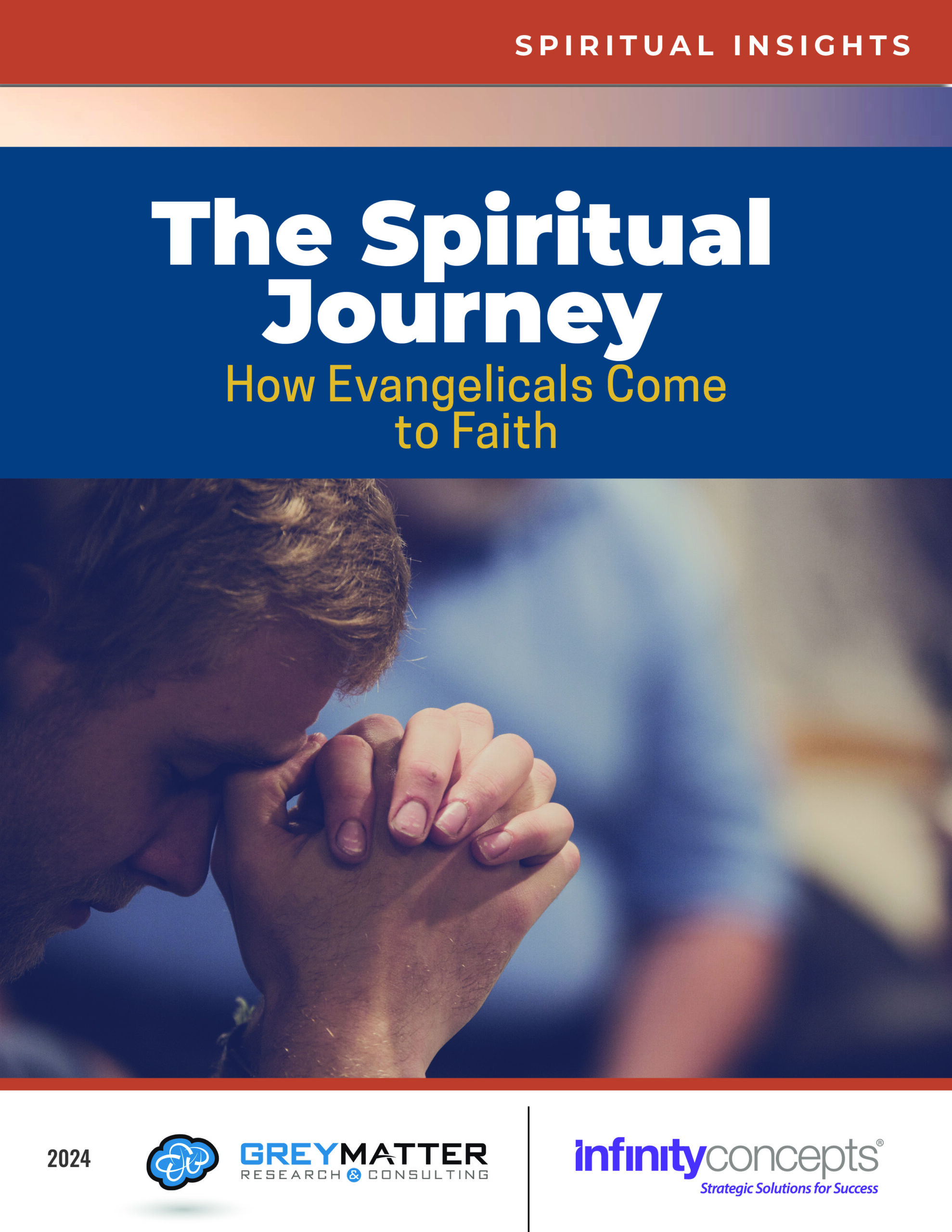How do evangelicals become evangelicals?
We’ve all heard dramatic spiritual journey stories of how evangelicals came to faith. Vacillating between a bottle and a Bible in a seedy motel room. Running down the aisle at a crusade. A moment of sudden conviction leading to confession and conversion.
But for most evangelicals, how they came to their beliefs is far more nuanced, and often more gradual. In fact, only a minority can recall a specific point in their lives when they decided to trust Christ. Fifty-four percent say theirs has been a more gradual process, without a specific decision point they can remember.

Influencing factors
A whopping 96% of evangelical Protestants cite multiple influences in how they came to their beliefs. In fact, the average is 3.4 different influencing factors.
The most common of these factors include a church they were attending (60%), one or both parents (50%), reading the Bible for themselves (46%), and a specific pastor or minister (39%). In total, 71% of today’s evangelical adults say one or more family members influenced their decision. Seventy-three percent say this of a church, pastor, or other church leader.
There are many other influencing factors, including family other than parent(s) or spouse (32%), a tragedy or difficulty in their life (23%), friends (22%), a spouse or partner (14%), an event such as a concert or crusade (14%), and Christian media or books (13%).
Learn all the details in our new report The Spiritual Journey: How Evangelicals Came to Faith, from Grey Matter Research and Infinity Concepts. (For a free copy of The Spiritual Journey, simply e-mail ron@greymatterresearch.com.)
Youth movement
Despite the amount of attention given to adult evangelism, 72% of today’s adult evangelical Protestants came to their beliefs before the age of 18. The average age of belief is 15, with a median of 12. No wonder parents and other family have such influence in how evangelicals came to their beliefs.
Just 4% of all adult evangelicals have come to their beliefs in the last four years. In fact, among the 28% of evangelicals who became believers as adults, the average is that this happened 25 years ago.
Making sense of the data
The report raises a variety of critical points:
- Three out of four evangelicals came to their beliefs before turning 18. Is Christendom sufficiently prioritizing reaching youth and children? Are we giving parents, family, and churches the resources to do this effectively?
- Are churches sufficiently preparing parents for their outsized role in the faith development of their children?
- Almost all believers cite multiple influences. Are people who share their faith setting themselves up for disappointment by expecting instant results in what is more often a gradual journey?
- We estimate nearly 8 million evangelical adults were influenced to become evangelical believers by Christian radio, television, and/or books. Christian media is sometimes derided as simply “preaching to the choir.” Does media receive enough credit for reaching non-believers?
- Numerous studies show declining church attendance and frustrated clergy too often doubting their role. Are church leaders fully aware of the level of impact they and their church have in developing new evangelical believers?
The Spiritual Journey: How Evangelicals Came to Faith details the findings from a study of more than 1,000 evangelical Protestant adults. The report is available free (e-mail ron@greymatterresearch.com).
How Can We Help You?
Grey Matter has helped scores of organizations understand their current constituents and their target market. This includes a wide variety of donor-supported organizations (faith-based and non-faith-based), denominations and individual churches, marketing/advertising/fundraising agencies, and for-profit companies.
How can we help you?
We have A Passion for Research That Makes a Difference. Talk to us about how we can make a difference for you.
